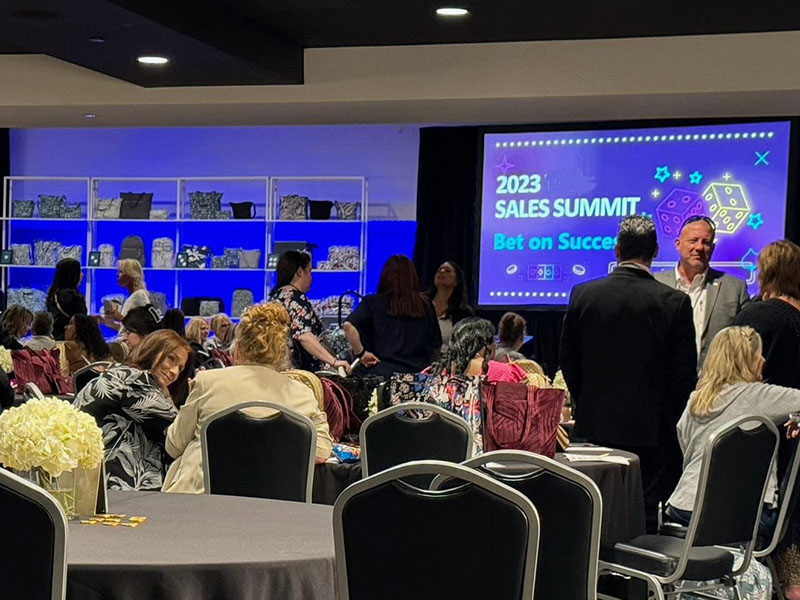Conference Planning and Management for Hybrid Events: Best Practices
As hybrid events become the new norm in the corporate and event planning world, effective conference planning and management now involves not only in-person logistics but also a solid foundation of AV technology, reliable streaming capabilities, and seamless virtual integration. For event organizers, the challenge lies in creating an experience that feels cohesive and engaging for both in-person attendees and remote participants.
To make that happen, you need more than just a meeting agenda—you need the right AV equipment, a skilled production team, and thoughtful execution. In this article, we’ll explore the best practices for conference planning and management for hybrid events, with a strong focus on the AV technology and technical support that make these events successful.
Best Practices for Managing a Hybrid Event
A hybrid conference combines a physical event space with a virtual component, allowing attendees to participate either on-site or online. While hybrid events offer increased flexibility and expanded reach, they also require more complex conference planning and management than traditional formats.
Not only must you manage physical logistics—venue setup, registration, catering—you must also coordinate camera crews, streaming platforms, microphones, displays, digital engagement tools, and tech support teams. This is where a professional AV partner becomes essential.
1. Start with a Technology-First Approach
AV technology is the backbone of every hybrid event. During the early stages of conference planning, outline your technical needs based on the event format, number of attendees, and types of sessions you plan to offer.
Key AV elements to consider:
- Cameras – PTZ cameras or broadcast-quality setups for live speaker coverage and audience reactions
- Microphones and Audio Mixers – Wireless lavalier or handheld mics for presenters, along with reliable digital mixing systems
- Projectors and Screens – For in-room visual presentations that mirror what online participants see
- Video Switchers – To toggle between camera feeds, presentations, and pre-recorded content
- Lighting – Stage and scenic lighting to ensure clear visuals for the camera and a professional look in the venue
- Streaming and Encoding Gear – Hardware or software solutions for broadcasting your event online in real-time
These components must work together flawlessly to create a unified experience for both audiences.
2. Partner with an Experienced AV Rental and Production Company
Instead of purchasing or piecing together AV gear, partnering with an experienced AV rental provider ensures access to the latest technology, plus the expertise to set it up and run it effectively. The right partner will offer projector and screen rentals, audio systems, stage lighting, computers and printers, and more.
More importantly, they’ll provide on-site and remote tech support, manage live switching, and troubleshoot in real time—so you can focus on the content, not the cables.
Look for a partner who offers:
- A wide inventory of AV equipment
- Nationwide service and delivery
- Scalable solutions based on your event size
- Setup and teardown included in the service
- Live technical support throughout the event
3. Design the Event for Both In-Person and Virtual Attendees
Hybrid events should never feel like two separate experiences. Your conference planning and management efforts should be directed toward creating a unified event that caters equally to remote and in-person audiences.
Tips to bridge the experience gap:
- Use high-quality video and sound to bring remote attendees into the room
- Include live chat and Q&A features for virtual guests
- Assign moderators to monitor and manage both audiences
- Stream keynotes, panels, and breakout sessions simultaneously
- Provide digital handouts or resources for all participants
The more aligned your virtual and in-person experiences are, the more satisfied and engaged your audience will be.
4. Run Tech Rehearsals and Prepare for Contingencies
Nothing derails a hybrid event faster than a technical failure. That’s why technical rehearsals are critical. Schedule a full run-through with speakers, moderators, AV techs, and remote presenters ahead of time. Test every microphone, video feed, screen share, and livestream connection.
A seasoned AV team will also help you build in redundancy and contingency plans, such as:
- Backup internet connections
- Extra microphones and batteries
- Pre-recorded content in case of live-streaming issues
- A backup laptop for presentations
Being proactive with your tech planning is the best way to ensure a smooth hybrid conference experience.
5. Leverage Data and Recording for Post-Event ROI
One of the major advantages of hybrid events is that you can easily record and repurpose content for post-event use. Work with your AV team to capture high-quality video and audio of all key sessions.
After the event, you can:
- Offer on-demand access to recordings
- Create highlight reels or recap videos
- Share clips on social media or in marketing campaigns
- Analyze engagement data from virtual attendees
This content becomes valuable collateral and extends the life of your event beyond a single day.
Choosing the Right AV Partner for Your Hybrid Conference
Ultimately, a successful hybrid event requires close collaboration with a professional AV team that understands the complexities of both physical and digital experiences.
At FDC Event Technology, we specialize in providing full-service AV rental and production support for hybrid conferences of all sizes. From projectors, screens, and sound systems to computers, printers, lighting, and live streaming solutions, our team ensures a smooth and polished experience from start to finish. We also offer nationwide service, making it easy to scale your event no matter where it’s located.
Whether you’re hosting a board meeting, training seminar, or multi-day conference, FDC has the technology and expertise to bring your hybrid event to life—on time and within budget.
Contact us today to learn more about our AV rental services and how we can help with your next hybrid conference. Let’s create an experience that connects and engages every attendee—wherever they are.

